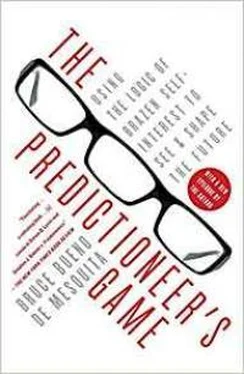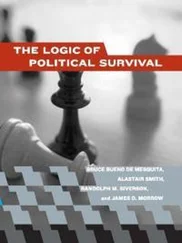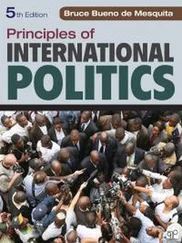The United States operates the Concerned Local Citizens program in Iraq. Following the alphabet-soup tradition so beloved by the Pentagon, the Iraqis participating in this program are known as CLCs. CLCs help guard neighborhoods against insurgents. They are paid ten dollars a day for their service. It doesn’t seem as if there is anything crass or overly materialistic about that. But then we should pause to ask, who are these CLCs and what, exactly, are we buying for ten dollars a day?
These concerned Iraqis are not your ordinary neighborhood watch group. They are not the folks next door who give school kids a safe place to go when their parents are at work. They are not the friends who have your house key, water your plants, take in your mail, and feed your cat while you’re on vacation. No, they’re former anti-American insurgents, tens of thousands of them. Some of them, in fact, used to belong to al-Qaeda. It would seem that they were among the most fanatic of fanatics, the worst of the worst. And yet for a measly ten bucks a day these supposedly unshakable al-Qaeda terrorists now act like allies of the United States, serving as our very own paramilitaries, helping to keep violence down in mostly Sunni neighborhoods, defending the peace that they used to shatter for a living. How can this be? How can terrorists be so easily converted into our friends and protectors?
As it happens, being an ex-insurgent employed as a CLC is a very good job by Iraqi standards. At ten dollars a day, CLCs can earn a few thousand dollars a year from the United States, plus, of course, whatever extra they make on the side. The average Iraqi, despite that country’s huge oil wealth, earns only about six dollars a day, almost half what a CLC gets! 3Those who think that terrorists are irrational religious zealots who do not respond to monetary and personal incentives should remember that a daily dose of just ten dollars is enough to get such folks to become quasi-friends of the United States of America.
Of course, there is as much room for saints as for sinners in game theory. There’s no problem accommodating the (few) Mother Teresas of our world. Since game theory is about choosing actions given expected costs and benefits, it does encourage us to ask, perhaps obnoxiously, what benefits Mother Teresa might have expected in return for her life of sacrifice and good works. We cannot help but notice that she did not serve the poor as quietly as most nuns do, living out their lives in anonymous obscurity. The very publicness of Mother Teresa’s deeds reassures us of her rationality and her potential to help poor people on a large scale.
Whether we call on the Catholic understanding of a saintly life or the Talmudic view of a charitable life, we encounter a problem on Mother Teresa’s behalf. In doing her good works, she might have had to worry, as (Saint) Bernard of Clairveaux (1090-1153) did, that in obeying God’s commandments as faithfully as possible she could be committing the deadly sin of pride. Maybe she thought herself better than others, more deserving of heaven, even worthy of sainthood, exactly because of her personal sacrifice and good works. That, as we will see, does not seem to have been a major source of worry for her.
From the Talmudic perspective as expressed by Moses Maimonides (1135-1204), she would have had at least as big a problem. Maimonides, or Rambam as he was known in his day, concluded that charity given anonymously to anonymous recipients in order to help them become self-sufficient is the best kind. Mother Teresa’s giving did not rise to this standard, and she made sure it didn’t. She did not give anonymously; she knew to whom she was giving; and she did not strive particularly to make the beneficiaries of her kindness self-sufficient. In fact, she went out of her way to make herself and her acts recognizable. For instance, Mother Teresa carefully promoted herself, creating brand-name recognition—just like Cheerios, Coke, Xerox, or Vaseline—by always wearing the special habit of the order she founded (a white sari with blue trim and sandals) so that she could not be easily confused with just any nice old lady. Of course, anonymous giving could still be prideful, but for sure it could not lead to a Nobel Peace Prize in this world or to beatification and canonization in the next.
Could it be that Mother Teresa’s ambition for herself was tied to her faith in an eternal reward? It makes sense to pay the price of sacrifice for the short, finite time of a life span if the consequence is a reward that goes on for infinity in heaven. In fact, isn’t that exactly the explanation many of us give for the actions of suicide bombers, dying in their own prideful eyes as martyrs who will be rewarded for all eternity in heaven?
Or maybe, in Mother Teresa’s case, the rational, calculating motivation behind her deeds was more complex. We know now that she questioned her religious faith and the existence of God. 4Her doubts apparently began shortly after she started to minister to the poor and sick in Calcutta. By then maybe she felt locked into the religious life she chose for herself. Doubting God and ill-prepared for a life outside the Church, perhaps she found a perfect strategy for gaining the acclaim in life that she feared might not exist after death. Was she looking for an eternal reward, or for reward in the here and now? Only she could really know. We applied game theorists are content to observe that she acted as if being rewarded was her motivation. That is, she was not cold and materialistic; she was warm and materialistic. That is enough to make her a fine subject for analysis as a rational, strategic player in the game of life—and maybe enough to earn her sainthood as well.
Game theory draws our attention to important principles that shape what people say and do. First of all, just like Mother Teresa or a suicide bomber, all people are taken to be rational. That just means we assume they do what they believe is in their own best interest, whether that’s making as much money as they can or gaining entry to heaven or anything else. They may find out later that they made a poor choice, but in game-theory thinking we worry about what people know, believe, and value at the time they choose their actions, not what they find out later when it’s too late to do something else. Game theory has no place for Monday-morning quarterbacks. It’s all about what to do when decisions must be made, even if we cannot know for sure what the consequences of our actions will be.
This notion of rational action seems to trouble some people. Usually that’s because they mean something different from what an economist or political scientist means when talking about rationality. Words can have many meanings, so we must be careful to define ideas carefully. As it happens, game theorists insist on a particular use of the word “rational.”
Some folks seem to think that rational people must be super smart, never making a mistake, looking over each and every possible thing that could happen to them, working out the exact costs and benefits of every conceivable course of action. That is nonsense. Nobody is that smart or diligent, nor should they be. Actually, checking out every possible course of action, working out everything that possibly could arise, is almost never rational, at least not as the term is used in my world. It is never rational to continue searching for more information, for example, when the cost of finding out more is greater than the expected benefits of knowing more. Rational people know when to stop searching—when enough is enough. (I try to impart this message to my students. When they tell me they want to make their term papers as good as possible, I plead with them not to. A paper that is worked on until it is as good as possible will never be finished.)
Читать дальше












